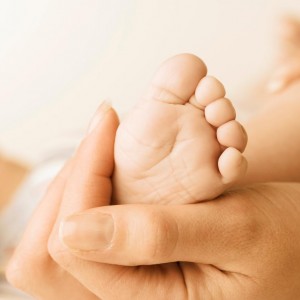Court Order Moves Effexor Birth Defect Lawsuits Closer to Trial
 A recent case management order in the Effexor multidistrict litigation has set a schedule to move cases toward the first round of trials. In the November 18, 2014, order, Judge Cynthia Rufe of the U.S. District Court, Eastern District of Pennsylvania, directed that fourteen bellwether cases will undergo discovery and the process of setting the cases for trial.
A recent case management order in the Effexor multidistrict litigation has set a schedule to move cases toward the first round of trials. In the November 18, 2014, order, Judge Cynthia Rufe of the U.S. District Court, Eastern District of Pennsylvania, directed that fourteen bellwether cases will undergo discovery and the process of setting the cases for trial.
Parties to select bellwether Effexor cases
The purpose of the bellwether cases is to allow the parties to determine the strengths and weaknesses of their cases. Each side (the collective plaintiffs on one, and Effexor manufacturer Pfizer on the other) is to select seven cases to be included in the bellwether group. The plaintiffs’ bellwether selections are to be made before Christmas while Pfizer’s selections are due in late January 2015.
Once the parties identify their bellwether case selections, they will undergo more thorough discovery including interrogatories, document production, and depositions of parties and witnesses. Of the 14 bellwether selections, only 12 Effexor lawsuits will ultimately proceed to trial on this first-track trial schedule; by winter of 2015, each side will be allowed to strike one case from the other side’s bellwether list.
Lawsuits allege Effexor causes birth defects
In the Effexor MDL, nearly 70 federal product liability cases have been pooled together for uniform handling by one judge. The judge, Judge Cynthia Rufe, is also overseeing a Zoloft birth defect lawsuits and was partly chosen to head the Effexor MDL because of the similarities between the two.
The federal court system favors using MDL to streamline cases with similar claims and often identical parties; this leads to more consistent rulings from case to case and reduces duplicative discovery.
Unlike a class action lawsuit, where one or several plaintiffs represent an entire class in a single lawsuit, in the MDL, each plaintiff retains his or her individual lawsuit. This means the outcomes of earlier cases are not binding on the later cases. But they do indicate to the parties how juries respond to their evidence and arguments.
There are several MDLs, including the Effexor and Zoloft litigations that allege antidepressants can cause birth defects. All are based on the same theories.
The plaintiffs allege that:
- Taking the antidepressant during the first trimester of pregnancy caused their children to suffer birth defects, including heart problems
- The manufacturers failed to conduct thorough research into possible side effects of using antidepressants in pregnancy
- The manufacturers failed to inform consumers and physicians of the birth defect risks
Status of Effexor birth defects lawsuits
While there are nearly now close to 100 cases in the Effexor MDL; some experts believe that number may grow to several hundred cases – the Zoloft MDL already has over 500 cases.
Simplifying procedures for potential Effexor plaintiffs, earlier this year, Judge Rufe issued a case management order that authorized plaintiffs from all over the country to file their complaints directly in the Eastern District of Pennsylvania. This move means a plaintiff no longer needs to first file in the federal court in his or her own state and then petition to have the case transferred to the MDL.


 Resources
Resources
 Resources
Resources
